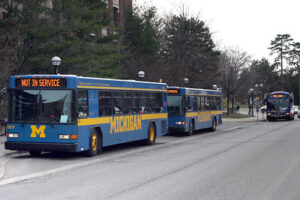WCC isn’t the only community college having difficulty getting people into its classrooms via the Michigan Reconnect program. According to the State of Michigan, only about 20% of those who the program accepted actually enrolled in a qualified program, and even fewer have graduated to date.
I have said this before. It doesn’t matter how free the tuition is; if the resulting degree does not produce a significant increase in salary, it’s not worth the effort. While Michigan Reconnect is a great program, the state relied on the assumption that community colleges had maintained the quality of their degree programs.
Instead, Michigan’s two-year schools shopped many of the same tired programs they have offered for years. Certain two-year degree programs can lift a person into the middle class. Most cannot. And not everyone is interested in pursuing careers in those limited fields. So, those adults who qualify for the program can’t afford to go to school for two years to become qualified for a job that pays a substantially similar wage to their current earnings.
In addition to the eligibility criteria for interested students, the state should also set participation requirements for colleges that want to participate. Those requirements should include developing and offering a minimum number of high-wage, high demand programs. Schools that don’t meet those requirements should be barred from receiving funds from the program until they do.
If the goal of “Sixty by 30” is increasing the number of people who have 60 college credits, then the program should immediately disqualify short-term certificate programs from eligibility, as they will not enable people to achieve the program’s goal of having 60 post-secondary credits.
State should impose standards for Michigan Reconnect participation
The Michigan Reconnect program should have – and would have – been a slow, fat pitch over home plate had the community colleges maintained the quality of their educational programs. I am not the only one who criticizes the community colleges for their failure to perform. The new Gainful Employment tests are likely to snag half of all certificate programs. And since WCC has for years been classified as a “certificate school,” this should be sounding alarm bells on the 2nd Floor of the Student Center Building.
Should be…
Sixty percent of WCC’s programs are certificate programs. If the analysis of certificate programs is remotely accurate, that means 25%-30% of WCC’s total catalog may fail the gainful employment tests. If those programs no longer qualify for federal financial aid, then they shouldn’t qualify for Michigan Reconnect, either. (Why should the state pay for something that the federal government has already determined to be worthless?)
If the State of Michigan wants to resuscitate Michigan Reconnect, it has to demand higher quality academic programs from its participating schools.
Photo Credit: Cindy Shebley, via Flickr






















